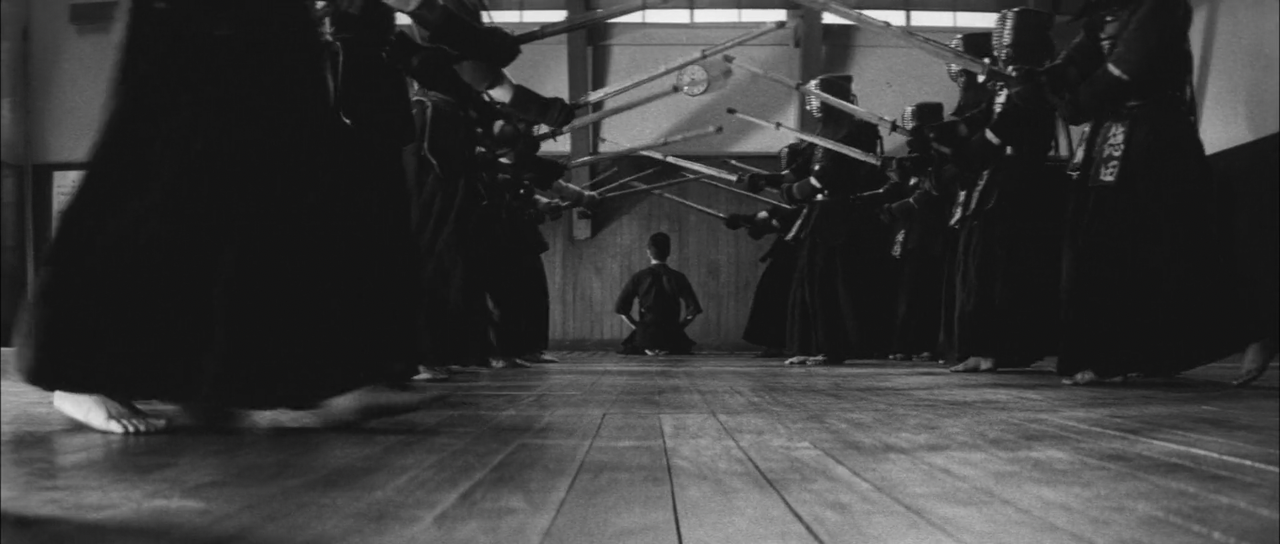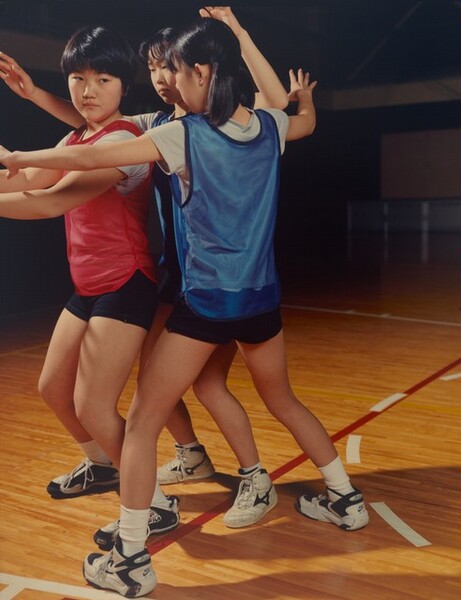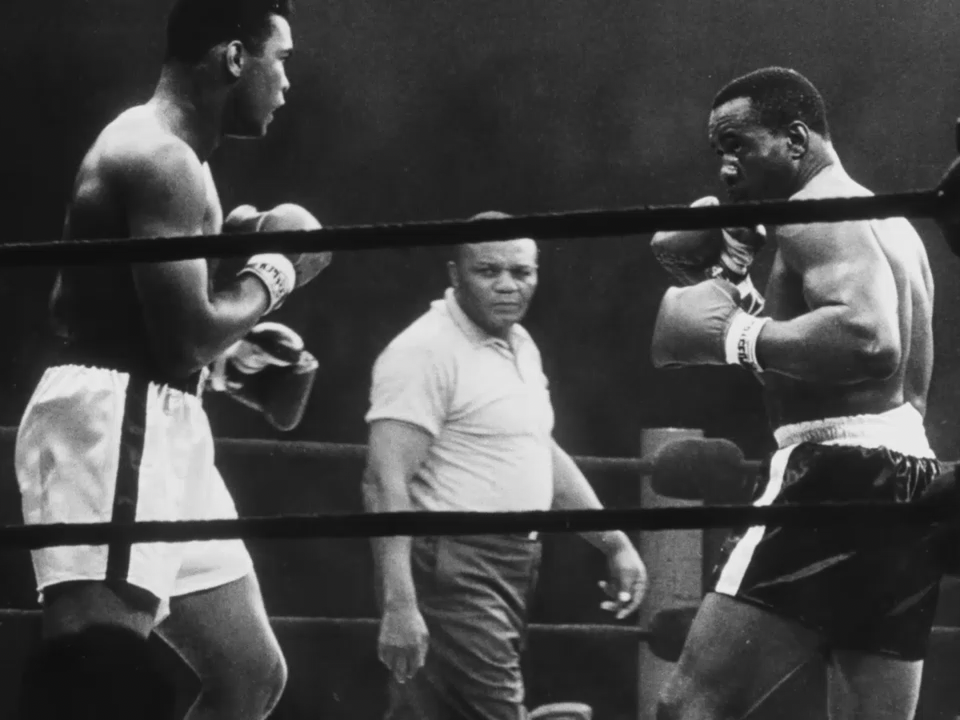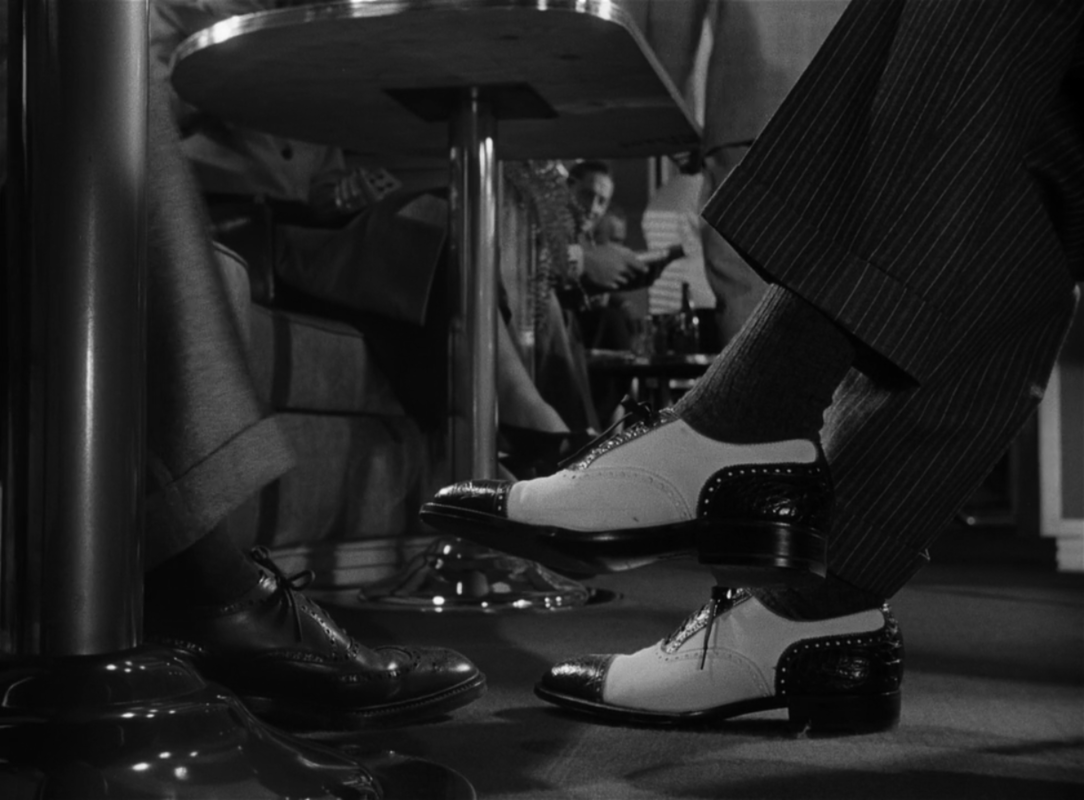Klincz [Clinch] (Piotr Andrejew, 1979)
Apr
5
Chicago

One of the boxers goes down (via). DPs: Jacek Mierosławski & Zbigniew Wichłacz.
Set in Chicago (or pizza) for National Deep Dish Pizza Day, USA.
A Polish factory worker hopes to find a better life when he picks up boxing. Initially unsuccessful. he finds himself in Chicago, facing an amateur boxer below his ranking.
sports
Die große Ekstase des Bildschnitzers Steiner [The Great Ecstasy of Woodcarver Steiner] (Werner Herzog, 1974)
Mar
13

Walter Steiner, flying. DP: Jörg Schmidt-Reitwein.
Die große Ekstase des Bildschnitzers Steiner [The Great Ecstasy of Woodcarver Steiner] (Werner Herzog, 1974)
Jan
25
Chamonix 1924 Winter Olympics

Live footage of Steiner preparing for his flight. DP: Jörg Schmidt-Reitwein.
Winter sports in celebration of the Chamonix 1924 Winter Olympics.
– Walter Steiner
In a film that is as much about Herzog as it is about Steiner, we follow the soft-spoken woodcarver in preparation of his definitive ski flight in Planica, Yugoslavia.
– So what is your goal in life then? – Satisfaction of the present. The sword, and nothing else.剣 (小説) [Ken / The Sword] (Kenji Misumi, 1964)
Dec
29
Tick Tock Day

One of the kendōka kneeled on the floor in gruelling punishment faces a clock on the wall, while the other students continue their training. DP: Chikashi Makiura.
A clock face on Tick Tock Day (USA)
After World War II, the Japanese martial arts of #kendo was banished by the occupying forces in an attempt to “remove and exclude militaristic and ultra-nationalistic persons from life”. With that in mind, it makes complete sense that nationalist author and former kendo practitioner Yukio Mishima wrote a short story – Sword, originally published in literary magazine Shincho in 1963 – about the art.
Both the story and Kenji Misumi's 1964 film adaptation follow arrogant kendo student Jiro, played by sublime kabuki actor Raizō Ichikawa who also appears in an earlier Mishima adaptation, 炎上 [Enjō / The Temple of the Golden Pavilion / Conflagration] (1958).
“We come to life, we die… It's a perpetual renewal. How boring.”剣 (小説) [Ken / The Sword] (Kenji Misumi, 1964)
Dec
6
rice

Young people eating. An older woman in kimono scoops rice from an electric rice cooker. When read from right to left, this scene – as are numerous others in Chikashi Makiura's photographed 剣 (小説) – are split into tradition and modernity. DP: Chikashi Makiura.
– Mibu
Goshogaoka [御所ケ丘] (Sharon Lockhart, 1998)
Nov
6
Play Basketball Day

Girls from the Moriya City Goshogaoka junior high school girl basketball team practising their blocking technique. Cibachrome print © Sharon Lockhart, 1997 (via).
Within the boundaries of Sharon Lockhart's static camera, girls from Goshogaoka junior high school practice basketball. In six uninterrupted 10 minute scenes, we see them warm up and train several typical moves, shots, and blocks. With the camera set in one position, some of the action happens off-screen, resulting in unrehearsed synchronised choreography.
“So where do we go from here?”O něčem jiném [Something Different] (Věra Chytilová, 1963)
Nov
3
Housewife Day

Věra (Věra Chytilová) looks out of a window. Everything is grey. DP: Jan Čuřík.
A housewife for (National) Housewife Day (USA)
In Věra Chytilová's O něčem jiném, parallel storylines, one filmed as a documentary the other as a fictional drama, of two women are shown.
– Eva
Olympic gymnast Eva (Eva Bosáková) undergoes a gruelling training regime. Housewife Věra (Věra Uzelacová) feels neglected by her husband. Both ruminate on a different life.
“I done wrestled with an alligator, I done tussled with a whale; Handcuffed lightning, thrown thunder in jail; Only last week, I murdered a rock, injured a stone, hospitalized a brick; I’m so mean I make medicine sick.”Muhammad Ali, the Greatest [Float Like a Butterfly, Sting Like a Bee] (William Klein, 1974)
Sep
4
Mouthguard Day

A randomly picked screenshot showing Muhammad Ali fighting George Foreman. Each and every scene of a William Klein film is a photograph. DPs: Étienne Becker, William Klein, Richard Suzuki & Patrice Wyers.
– Muhammad Ali
“Ich werde mich entschlossen verirren.” Die Angst des Tormanns beim Elfmeter [The Goalie's Anxiety at the Penalty Kick] (Wim Wenders, 1972)
Jul
28
National Soccer Day

Trainer, reserve players and goalkeeper Bloch on the bench after the latter has been removed from the match. Bloch (Arthur Brauss) has his upper body turned away from the others' and sits with only half of his backside on the bench. DP: Robby Müller.
A lot of #soccer there's not, in Wim Wenders' Die Angst des Tormanns beim Elfmeter. What we do have happens almost right at the start. After a foul, the titular goalkeeper Bloch (Arthur Brauss) is removed from the match. Frustrated he leaves and finds himself roaming the streets of #Vienna where he picks up boxoffice girl Gloria (Erika Pluhar). In the morning he kills her and travels to the countryside, waiting for the police to arrest him.
– Peter Handke
Die Angst is an early, perfect example of Junger Deutscher Film (”New German Cinema”). Its cinematic thanks to Robby Müller's observant eye and Peter Handke's precise language, both describing scenes and performers as if observed through a fourth wall.
A very slow burning road movie, a Taxi Driver in reverse if you will, that does without the neurotic showmanship of its Hollywood counterpart.
